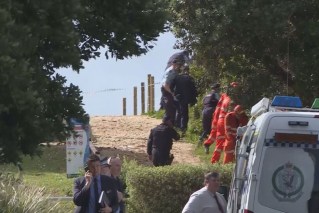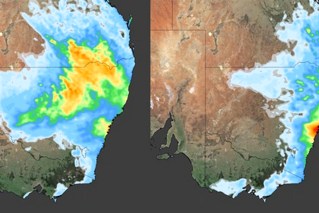Pfizer to trial vaccine for specific protection against Omicron

Pfizer has begun a trial for an Omicron-specific vaccine in a bid to create a targeted defence against the variant that’s sweeping the world, and protection that lasts longer.
Announcing the study on Tuesday, the company said the current vaccine that’s been deployed globally did offer strong protection against Omicron.
But its efficacy also “wanes more rapidly” against Omicron than it does against previous strains, hence the push for a jab to target Omicron specifically.
Pfizer said the trial was part of broader investigations into developing future vaccines to target mutant strains as they emerge.
“We recognise the need to be prepared in the event this protection wanes over time and to potentially help address Omicron and new variants in the future,” Kathrin Jansen, Pfizer’s vaccine research chief, said in a statement.
“Staying vigilant against the virus requires us to identify new approaches for people to maintain a high level of protection, and we believe developing and investigating variant-based vaccines, like this one, are essential in our efforts towards this goal.”
BioNTech CEO and Co-founder Prof. Ugur Sahin said the study aimed to develop a variant-based vaccine that achieved a similar level of protection against Omicron as it did with earlier variants, but with longer duration of protection.
“Vaccines continue to offer strong protection against severe disease caused by Omicron. Yet, emerging data indicate vaccine-induced protection against infection and mild to moderate disease wanes more rapidly than was observed with prior strains.”
The new US study is enrolling up to 1420 healthy adults, ages 18 to 55, to test the updated Omicron-based shots for use as a booster or for primary vaccinations.
Researchers will examine the tweaked vaccine’s safety and how it revs up the immune system in comparison to the original shots.
In one study group, about 600 volunteers who received two doses of the current Pfizer vaccine three to six months ago will receive either one or two Omicron-based shots as boosters.
Another 600 who have already had three regular doses of the Pfizer vaccine will be given a fourth dose of either the regular vaccine or the Omicron-matched version.
The study also will enrol some unvaccinated volunteers who will receive three doses of the Omicron-based vaccine.
Meanwhile as Australian states wonder if their Omicron outbreaks have peaked, the message from the World Health Organisation is far more straightforward – just keep getting vaccinated.
Tasmania became the latest jurisdiction to declare it was past this outbreak’s peak on Tuesday, while Queensland authorities said some regions would have also experienced their top caseloads.
Federal Health Minister Greg Hunt has previously declared infections have peaked in NSW, Victoria, the ACT and South Australia,
Tasmania’s public health director Mark Veitch also said his state’s case numbers were tracking downwards, believing community transmission was decreasing from earlier in the month.
But the WHO’s Dr Margaret Harris said vaccination levels must continue to rise, or further transmission would simply continue.
“We all would love to be talking about COVID as if it was a distant memory. We’re all heartily sick of it but unfortunately it’s not sick of us,” she told the Nine Network.
“It’s unlikely to go away and when (people) mention a bad flu, you’re really saying it will turn into a disease we don’t particularly like but doesn’t kill us and vaccination is certainly getting us closer to that position.”
NSW reported 18,512 new cases and 29 deaths on Tuesday, while Victoria recorded 14,836 infections and 29 deaths.
Another 11 people died in Queensland, which reported 9546 new cases, while the ACT recorded 904 infections and one death.
South Australia recorded 1869 cases and five deaths, while there were 643 new cases in Tasmania and one death.
There were 517 cases in the Northern Territory and 14 in Western Australia.
-with AAP








